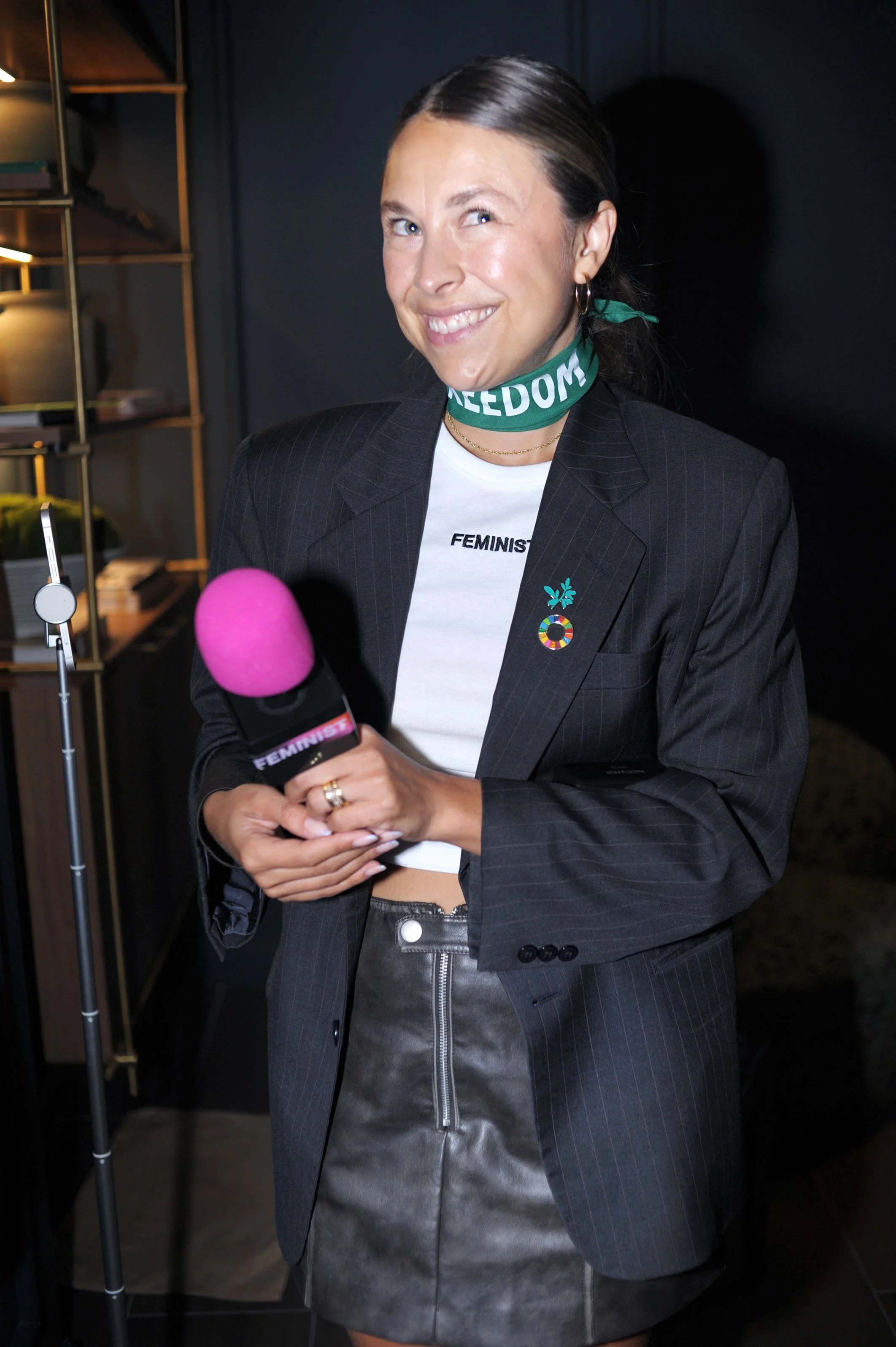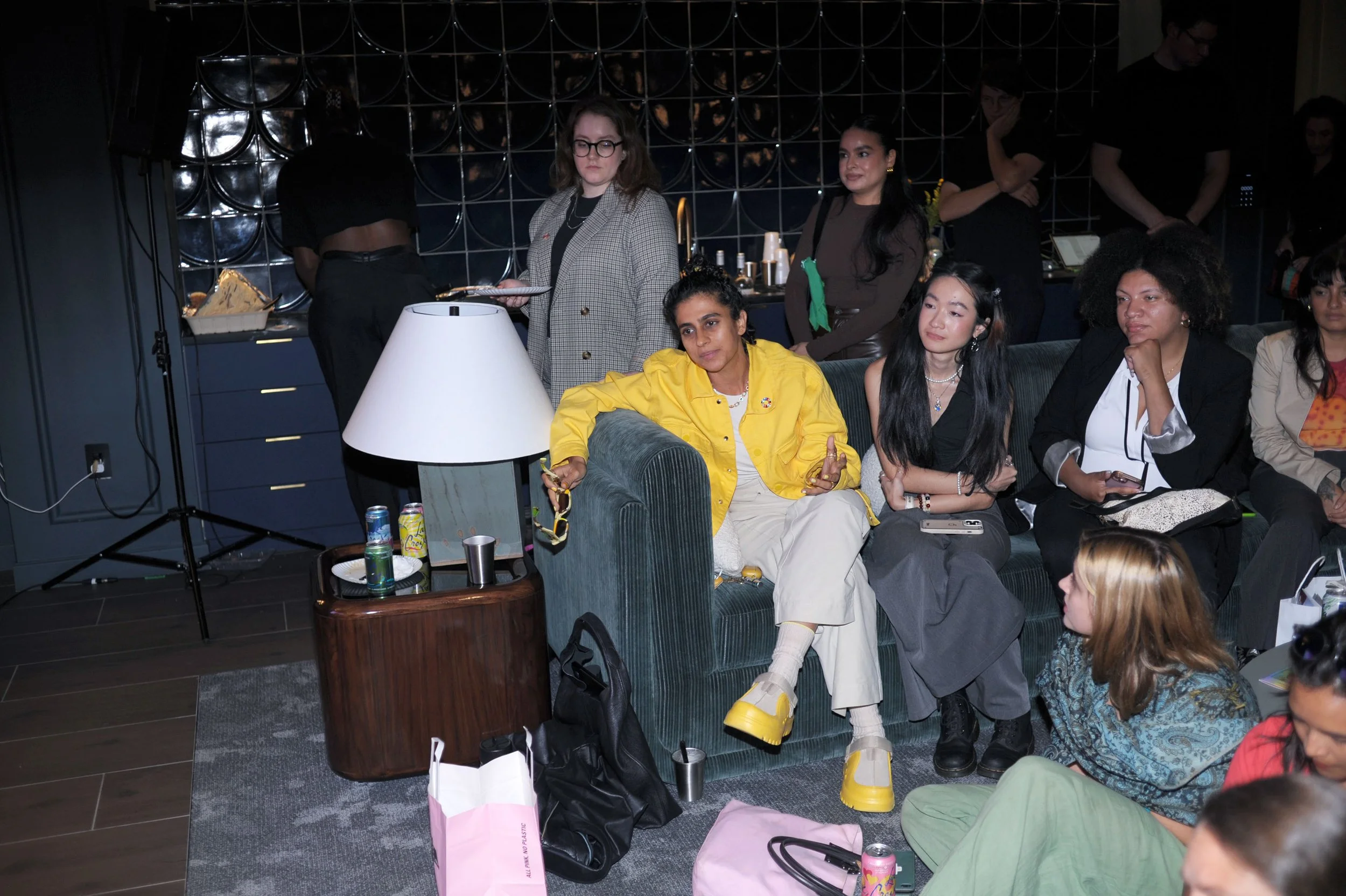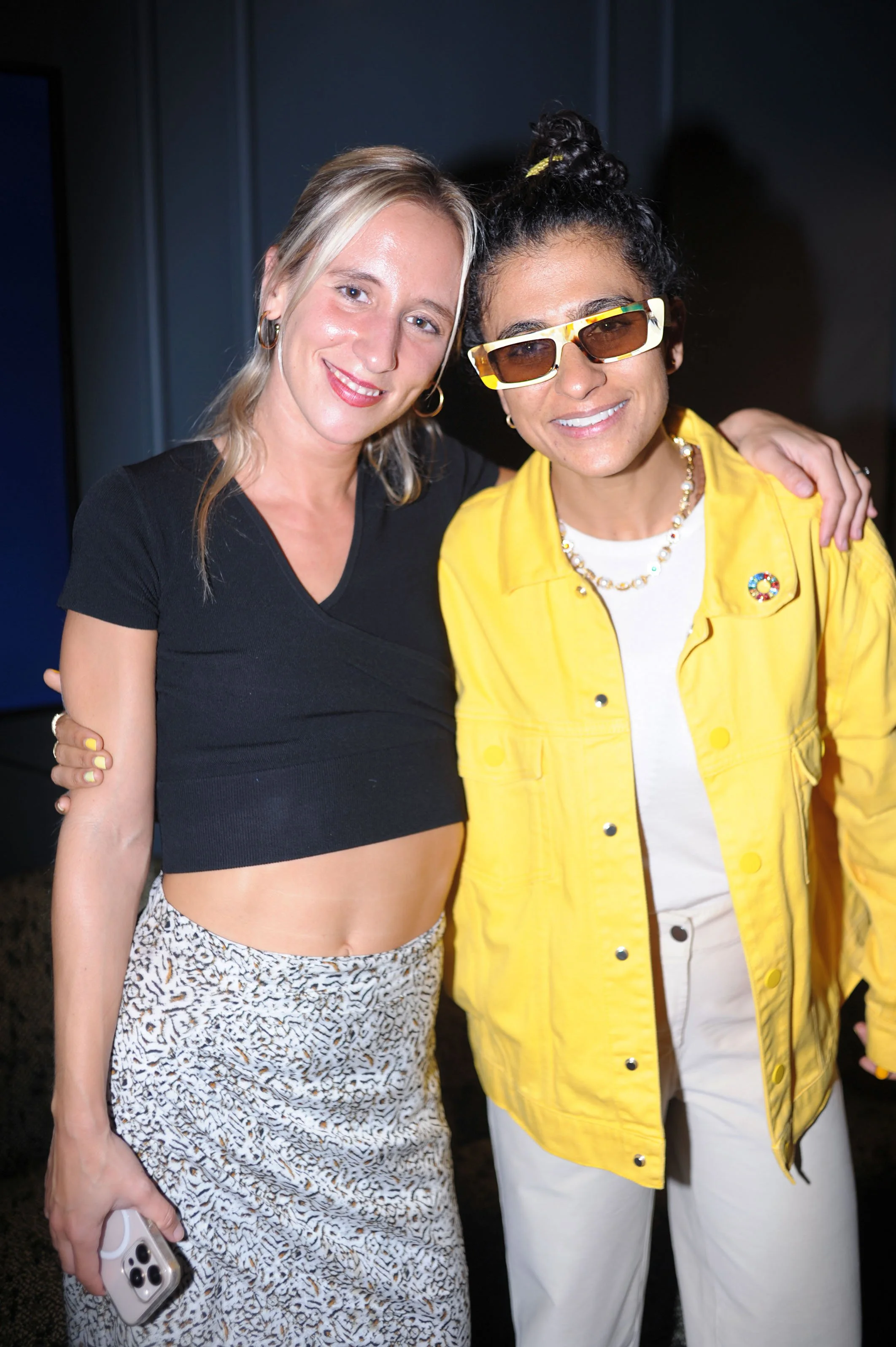UNCENSORED: FEMINISTS ON REPRO @ UNGA
UNCENSORED: Feminists on Repro at UNGA was hosted by Repro Uncensored with FEMINIST. The evening brought together artists, human rights defenders, policymakers, and feminist change makers to address urgent questions in reproductive justice. The night also featured a live performance by Madame Gandhi.
While world leaders gathered uptown for the United Nations General Assembly, a very different form of diplomacy took place downtown. More than 200 people RSVP’d to this grassroots gathering. There were no corporate sponsors and no large budget. The focus was on truth, lived experience, and community.
All photography was captured by Kristina Shakht.
Why This Night Mattered
Earlier this year, the United States government chose not to attend its Universal Periodic Review at the UN Human Rights Council in Geneva. This decision prevented advocates from presenting evidence of human rights violations in the formal venue designed for that purpose.
The seven speakers on our panel had submitted shadow reports documenting how abortion bans in the United States violate human rights. Since these findings could not be heard in Geneva, we created a space in New York where they could be presented directly to the public.
Elise Keppler from the Global Justice Center opened the evening with a clear explanation of the significance of the Universal Periodic Review, the role of international human rights law, and the concerns raised when a government declines accountability.
.
The Conversation
The panel was moderated by FEMINIST Co-Founder Ky Polanco and featured seven advocates whose work spans law, data, youth access, migration, racial justice, and reproductive rights. The conversation was livestreamed so people across the world could join. One attendee from Scotland shared that her mother was watching from home, demonstrating the global reach of these issues.
Speakers included
Elizabeth Estrada, National Latina Institute for Reproductive Justice
Discussed more than fifteen years of work at the intersection of immigrant rights and reproductive justice.
Bethany Van Kampen Saravia, IPAS US
Explained freedom of movement as a human right and how surveillance and border structures interfere with access to care.
Floriane Borel, Guttmacher Institute
Presented data showing that nearly one in five abortion patients now travel out of state for care, twice the rate before the Dobbs decision.
Israel Cook, Janes Due Process
Described the increase in young Texans needing to leave the state for care and the more than three thousand calls their organization received in the last year.
Qiana Arnold, The Holy HOE Institute, and Diamond Cunningham, Louisiana Abortion Fund
Joined virtually to outline the realities of total abortion bans in their states and how their communities are building support networks.
Kulsoom Ijaz, Pregnancy Justice
Detailed the rise in criminalization of pregnancy outcomes, including prosecution for miscarriages and stillbirths.
A Cross-Border Perspective
New York State Assembly Member Amanda Septimo joined FEMINIST Co Founder Aisha Becker Burrowes for a discussion on the connections between reproductive restrictions in the United States and those in countries such as the Dominican Republic. She emphasized that meaningful impact begins with taking one concrete action.













































































































































A Cultural Closing
The evening concluded with a live performance by Madame Gandhi, who reflected on her widely known free bleeding marathon moment and spoke about the role of culture in shaping conversations on bodily autonomy. Her performance served as a reminder that reproductive justice also involves expression, joy, and collective experience.
What Made This Event Different
This gathering was not a typical UNGA side event. There were no hotel conference rooms, no branded stages, and no scripted remarks. The room brought together artists, researchers, grassroots organizers, policy advocates, young people, and long time movement leaders. It was intergenerational, intersectional, and grounded in lived reality.
While formal discussions continued blocks away in tightly controlled environments, this event created a space where people directly affected by restrictions could speak openly about the challenges they face and the solutions they are building. It also centered the importance of community care and the collective work that sustains reproductive freedom.
Bummed cohosted the evening and reminded participants that bodily autonomy requires comprehensive and shame free healthcare across all areas of the body, including anorectal health. Reproductive justice demands full spectrum care.
The Work Ahead
More than 200 people chose to participate in a grassroots event with no institutional backing. This demonstrates the clear need for honest spaces where people can hear directly from advocates, build community, and access information without interference or censorship.
FEMINIST reaches more than twenty-five million people monthly, and Repro Uncensored documents censorship across borders. Events like this reinforce that both digital and in-person spaces are essential. Real progress requires environments where those most affected by injustice lead the conversation and share their expertise.
The United States government may attempt to avoid accountability, but the movement is moving forward regardless. We are creating our own spaces, generating our own data, and developing our own cross-border strategies.
Event Partners
UNCENSORED: Feminists on Repro at UNGA was hosted by Repro Uncensored with FEMINIST, together with Guttmacher Institute, IPAS US, National Latina Institute for Reproductive Justice, Pregnancy Justice, Louisiana Abortion Fund, Janes Due Process, The Holy HOE Institute, Women in America, and additional supporting partners.
.


